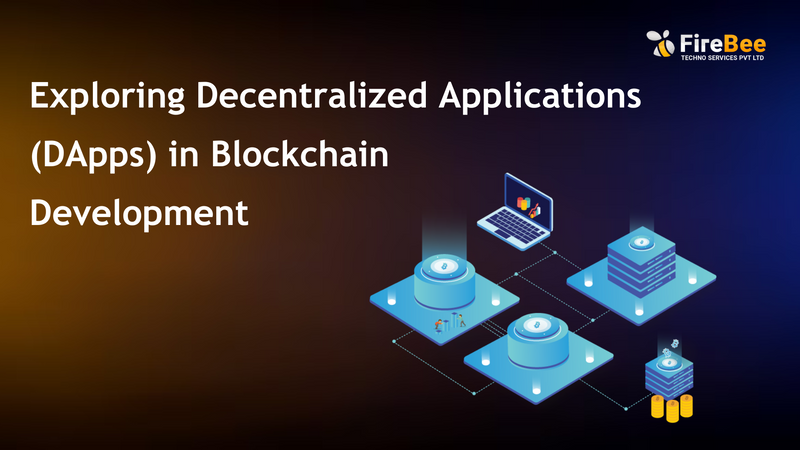Introduction
Decentralized Applications, or DApps, are a crucial component of blockchain technology. They leverage the decentralized and secure nature of blockchain networks to create applications that can offer various functionalities, from financial services to gaming and more. In this overview, we'll explore the key concepts, components, and considerations in developing DApps on blockchain platforms.
1. Understanding Blockchain Technology:
Blockchain is a distributed ledger that records transactions across a network of computers (nodes) in a secure and immutable way.
Smart contracts are self-executing contracts with the terms of the agreement between buyer and seller directly written into code.
2. Characteristics of DApps:
Open Source: DApps should have their source code publicly available.
Decentralization: They run on a blockchain network, reducing the need for centralized control.
Incentivization: DApps often use tokens to incentivize network participants.
Consensus Mechanism: DApps rely on the underlying blockchain's consensus mechanism for validation.
Data Immutability: Once data is recorded on a blockchain, it cannot be altered.
3. Popular Blockchain Platforms for DApps:
Ethereum: Known for pioneering smart contracts and DApps, it offers a robust ecosystem for developers.
Binance Smart Chain (BSC): A faster and cheaper alternative to Ethereum for DApp development.
Polkadot: Allows interoperability between different blockchains and offers a flexible framework for DApps.
Solana: A high-performance blockchain suitable for resource-intensive DApps.
4. Components of DApp Development:
Smart Contracts: These are the core of most DApps, defining the rules and logic of the application.
Frontend: The user interface (UI) of the DApp, typically built using web technologies like HTML, CSS, and JavaScript.
Backend: Depending on the DApp, you may need a traditional backend server or utilize decentralized storage solutions.
Blockchain Interface: Developers interact with the blockchain using APIs and libraries provided by the blockchain platform.
Wallet Integration: Users need a way to manage their tokens and interact with the DApp; integrating wallets like MetaMask is common.
Token Integration: If your DApp has its own token, you'll need to implement it according to blockchain standards (e.g., ERC-20 for Ethereum).
5. Challenges in DApp Development:
Scalability: Blockchains like Ethereum can face scalability issues, leading to high gas fees and slow transaction times.
User Experience: Using DApps should be as seamless as traditional applications to attract mainstream users.
Security: Smart contract vulnerabilities can lead to hacks; security audits are critical.
Regulatory Compliance: DApps must adhere to legal and regulatory requirements in different jurisdictions.
6. DApp Categories:
Financial DApps: Includes decentralized exchanges (DEXs), lending platforms, and stablecoins.
Gaming DApps: Blockchain-based games, collectibles, and virtual worlds.
DeFi (Decentralized Finance): DApps for financial services like lending, borrowing, and trading.
NFT (Non-Fungible Token) DApps: Used for digital art, collectibles, and unique assets.
7. Development Tools:
Use blockchain-specific development tools like Truffle (Ethereum), Hardhat (Ethereum), or Near CLI (NEAR Protocol).
Frameworks like React, Angular, or Vue.js can be used for building DApp frontends.
Utilize development environments provided by blockchain platforms (e.g., Remix for Ethereum).
8. Testing and Deployment:
Thoroughly test your DApp's smart contracts, both manually and with automated tools.
Deploy your DApp to the blockchain platform of your choice, considering gas fees and network congestion.
9. Maintenance and Upgrades:
Regularly update your DApp to fix bugs, improve performance, and add new features.
Engage with the community and gather user feedback for continuous improvement.
Conclusion.
We are a pioneering force in blockchain development, leveraging cutting-edge technology to create secure, transparent, and efficient solutions. Our team of experts specializes in blockchain architecture, smart contract development, and decentralized applications, enabling businesses to harness the power of blockchain for innovation and growth.



Top comments (0)